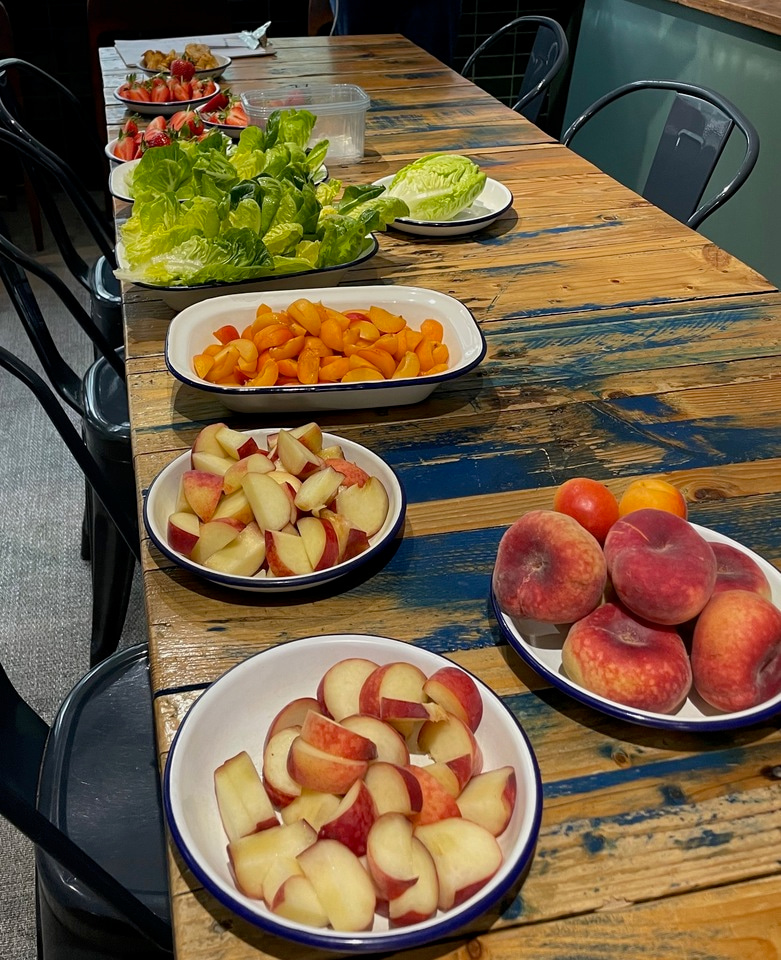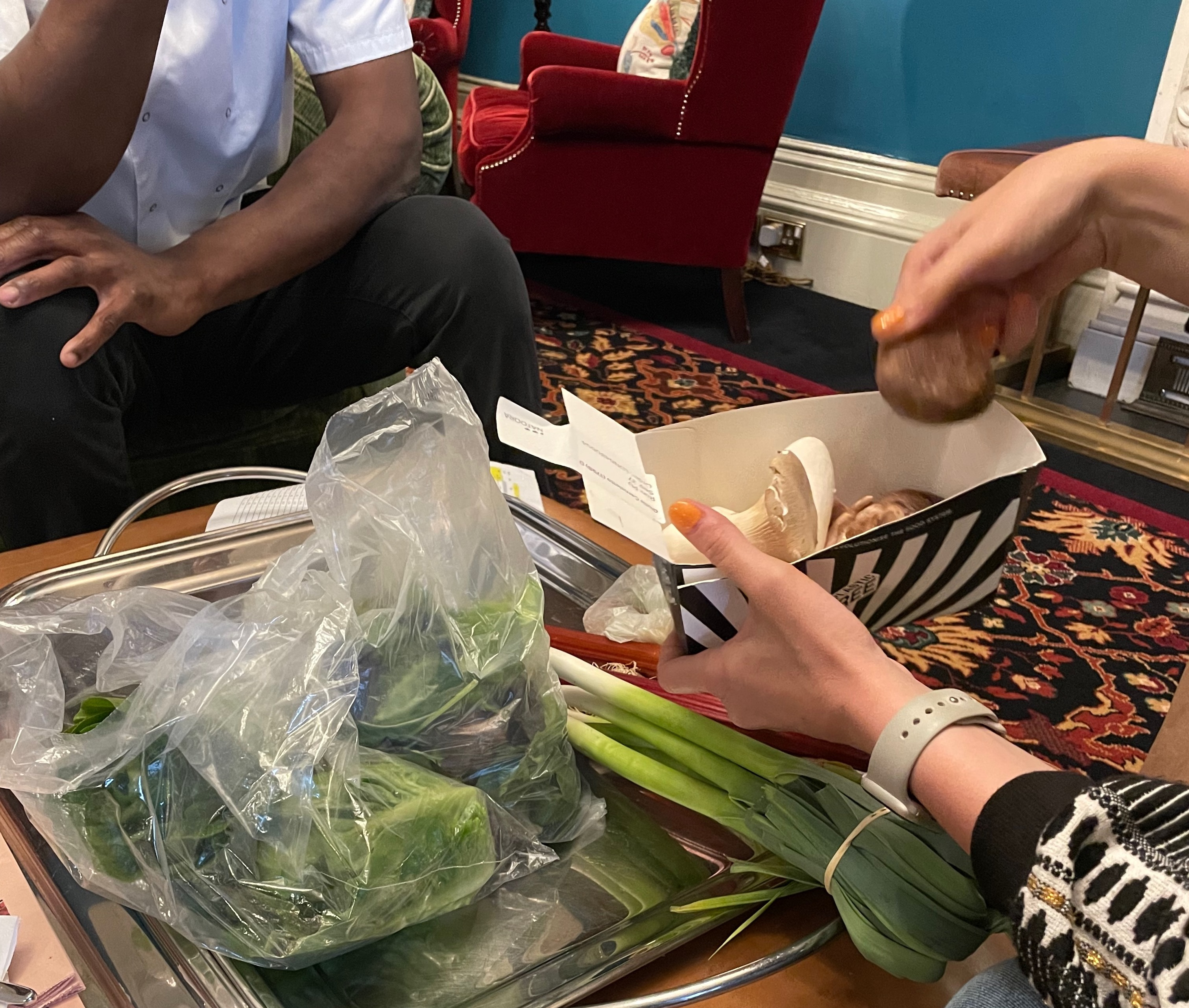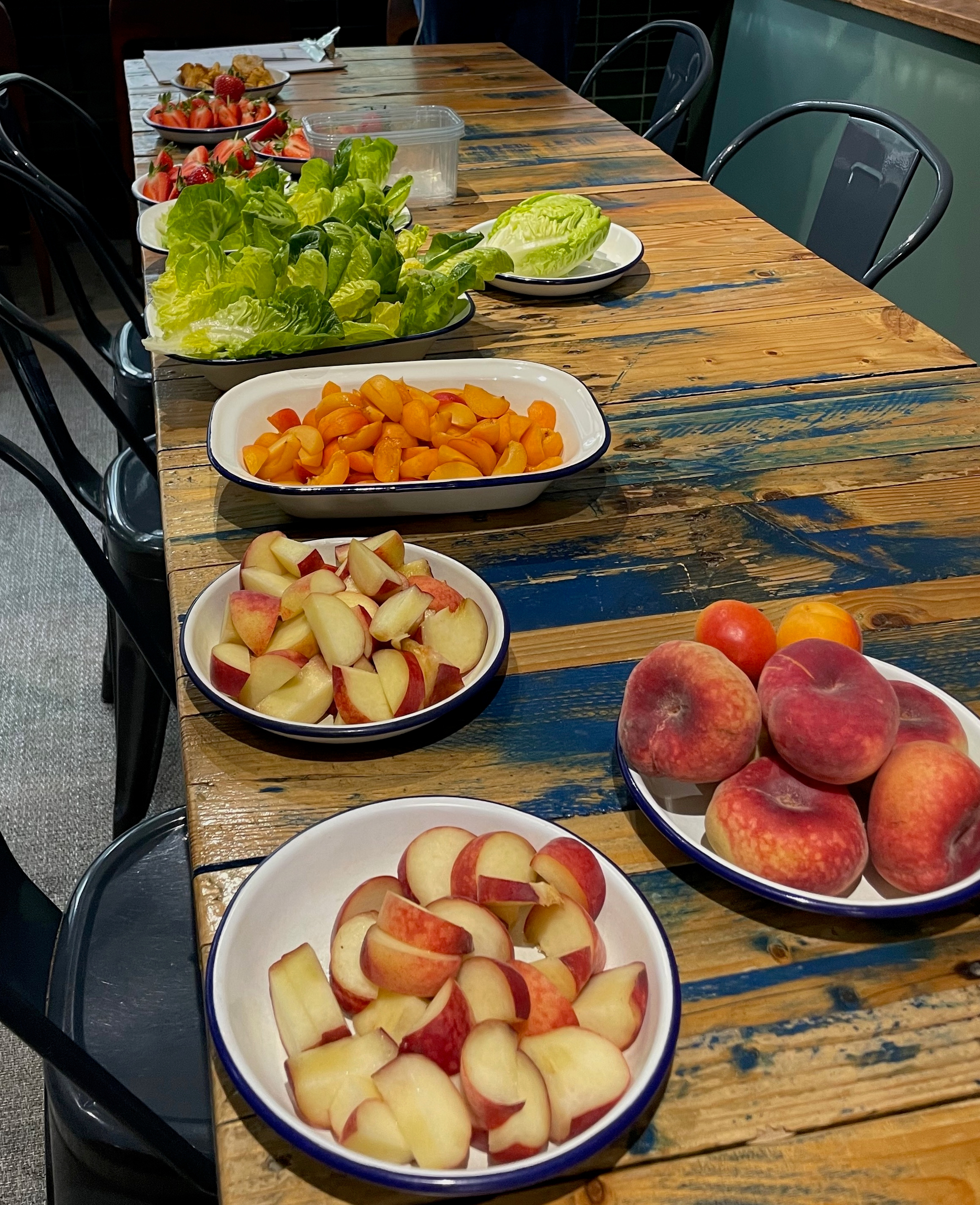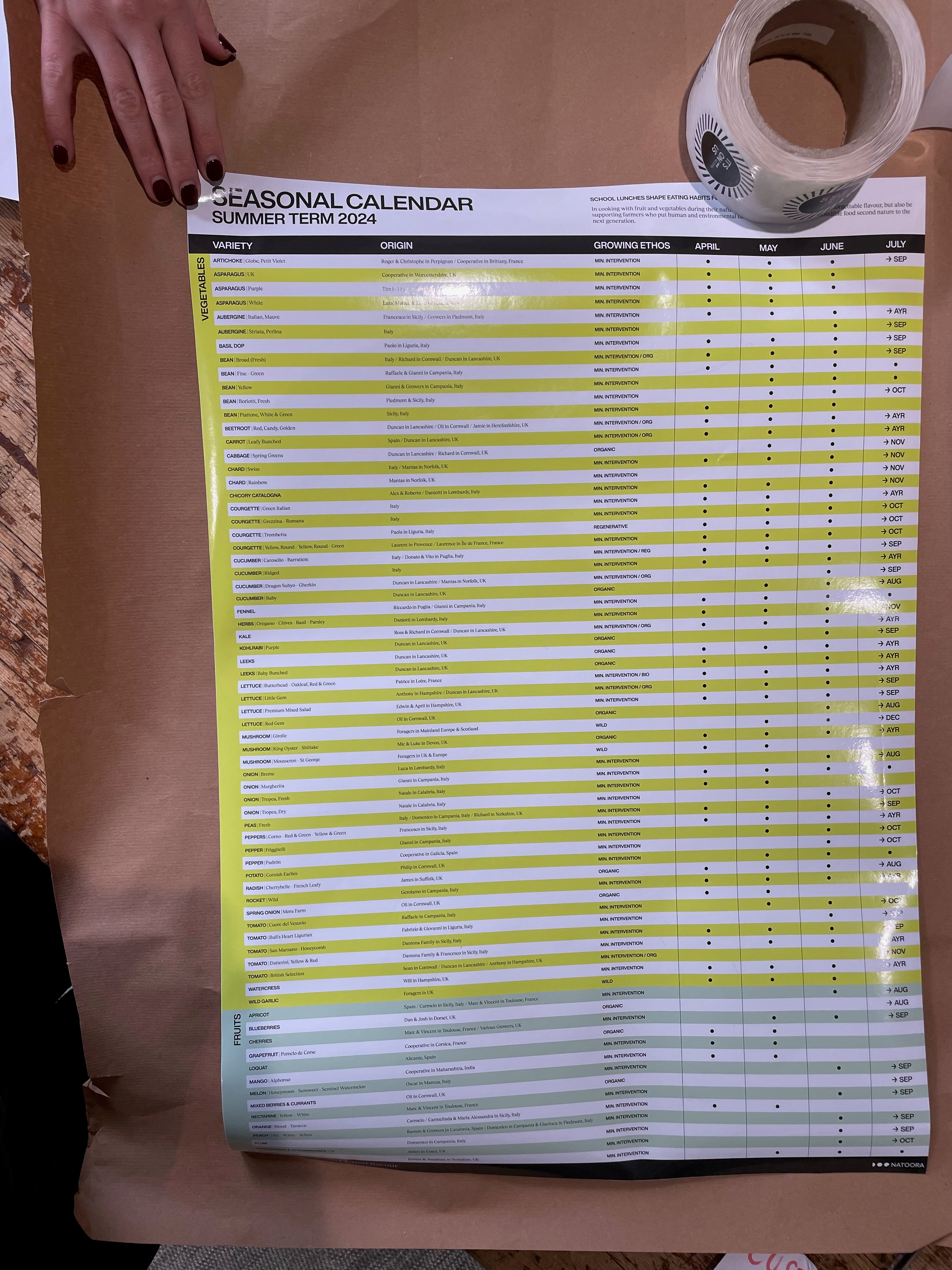LiA Reflection 2

Hi again! This is my second follow-up post about my time at Natoora. Here, I will share a bit more about my experience with the Natoora education department, and share some examples of how food and education are connected in the work they do.

One of the most interesting experiences as the week continued was visiting restaurant customers with Giulia, one of Natoora's account managers. Her job is to directly communicate with chefs of restaurants that buy produce from Natoora. Every day she visits several chefs to show them the new produce that’s just arrived and make sure their questions are answered. The variety of the restaurants and wholesale customers that Natoora serves was interesting to me; we visited a traditional British hotel in West London and a restaurant in Borough Market with a modern menu. Despite serving different crowds, they had a common interest in seasonality and sourcing the best possible ingredients. Cost is of course a big thing for them to consider. Natoora has a reputation for being more expensive, and chefs are aware of this, but also understand the quality of the product. In our meetings with the chefs, Giulia was straightforward and clear about how price related to quality, and we found several ingredients where Natoora could match or exceed quality while offering the restaurants a better price. I was interested to get a view into the decision making process of a chef choosing ingredients as well as the way seasonality and diversity of produce offerings are valued. Giulia sends personal messages to chefs, and the openness of her communication about the product is a key example of his Natoora emphasizes relationships and prioritizes quality.
One other experience which really crystallized the importance of education and knowledge in the work Natoora does was the fruit and vegetable meeting. This happens at the office once a week, when almost everyone who works for in the office comes together to see, touch, taste, and discuss the new produce lines that are becoming available as the season progresses. This week, new lettuce and strawberries from the UK had arrived, as well as the season’s first flat white peaches from Spain. This is a crucial meeting for the staff as it’s important that everyone understands how these products were grown, where they come from, how they should be used, and most importantly how they taste. The heirloom tomato line was about to open, and some had arrived in the warehouse recently, so we all got to try them - I had never seen so many people so excited about a tomato!

Later in the week, I sat in on a meeting with a teacher and chef from School 21, a London primary school. Natoora supports the Chefs in Schools program which brings chefs into London schools to provide quality meals to students. School 21 buys produce from Natoora that is used in their kitchen. This meeting was between the Natoora education department and the staff, who are planning a series of workshops with students and the education department on cooking and eating seasonally and with sustainability in mind. The school is one of many in the London area that Natoora works with to provide not just ingredients but also educational experiences that broaden students’ awareness of nutrition and sustainability, while also striving to increase access to better ingredients. Later that day, we sent out care packages to several schools’ kitchens including samples of fresh produce and posters that lay out all the different produce they offer and what’s in season when, for the reference of students and staff alike. This experience was a great example of how Natoora makes an effort to reach communities beyond the higher-end grocery clients and restaurants they serve, and make a larger impact in London by spreading the gospel of good food.

Natoora is deeply connected to London's food world - as I will elaborate on in my next post, they also buy produce from the growers at Wolves Lane Centre, an urban farm in North London where I am continuing my Leadership in Action project work. See you next week!




Please sign in
If you are a registered user on Laidlaw Scholars Network, please sign in
Looks delicious! Amazing work you are doing!